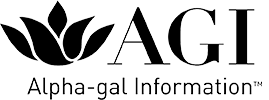More Information for Healthcare Providers–Coming Soon!
Coming Soon
- An Introduction to AGS for Physicians
- AGS for Primary Care Physicians by Scott Commins, MD, PhD
- AGS for Allergists by Scott Commins, MD
- AGS for Pediatricians
- AGS for Anesthesiologists
- AGS for Gastroenterologists
- AGS for Dermatologists
- AGS for First Responders
- AGS for Dentists
- AGS for Pharmacists
- AGS for Outpatient Surgical Units and Hospitals
- Pre-surgical intake
- The importance of charting correctly
- Coding
- Alerts for anesthesiology, pharmacy, dietary manager, nursing administrator, surgical unit (pre-op and post-op)
- Pre-op charting
- Patient’s responsibility to make sure AG is correctly notated and alerts have been sent
- Nursing staff responsibility to ensure AG compliance throughout stay
- Nursing staff checklist (regarding the following):
- Medications
- Both administered in hospital/clinic and prescribed
- Resources available for patients
- Resources available for nurses, doctors, techs, kitchen, anesthesiology, etc.
- Topicals
- Ingredients to watch out for
- Alternatives to commonly used topicals
- Bandages, tapes, etc.
- Ingredients to watch for
- Alternatives to commonly used bandages, etc.
- Anesthesia
- Implications/resources for anesthesiology
- Who/where to call if you have questions
- Pharmacy
- Communication in advance
- Resources available for pharmacists, nurses, and doctors
- Proper notation throughout stay (sign off on all meds)
- Who/where to call if you have questions
- Post-op
- Proper notation on file for medications, topicals, bandages, etc.
- Allowing family member/advocate to be with patient following procedure until conscious (to monitor and make decisions they are not able to make)
- Dietary restrictions/kitchen communication
- Educational resources available to kitchen staff prior to visit
- Checklist be made available (including ingredients, condiments, cooking oils, shared utensils and pans, etc.)
- Educational materials regarding fumes (from foods, chemicals, etc.)
- Olfactory implications – fume reactions
- Not only relevant in regards to foods
- Pre-surgical intake
- Resources for Physicians
- Implications for Pharmacists document
- Medication ”No-No” list (to include medications, medication ingredients, fillers, etc.)
- List of safe alternatives to some typical medications, topicals, bandages, etc.
- Spotting reactions: what to watch for before, during, and after surgery / procedures
- How to respond to reactions during care / procedures
- Our Voices: Patients’ Healthcare Stories
